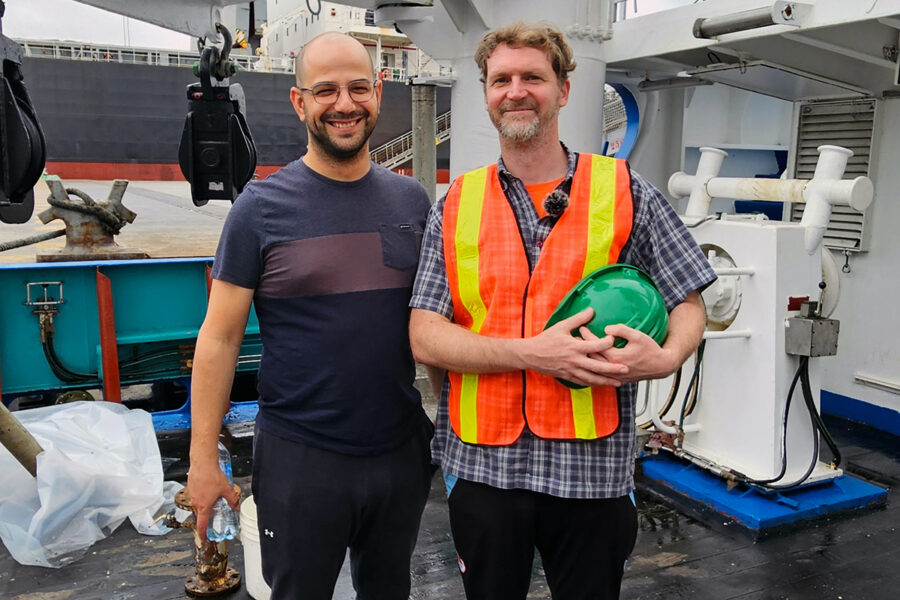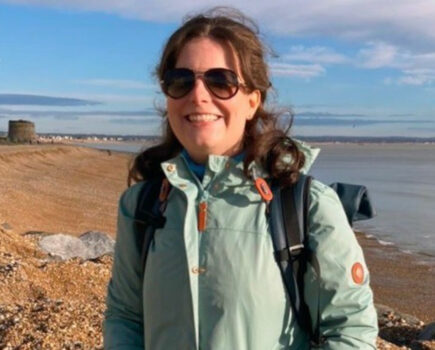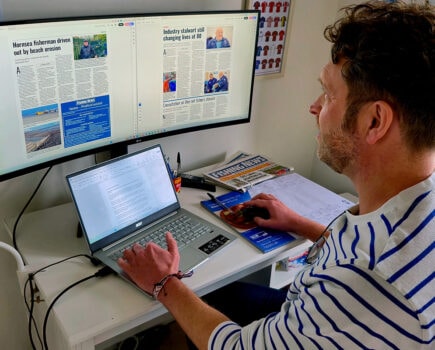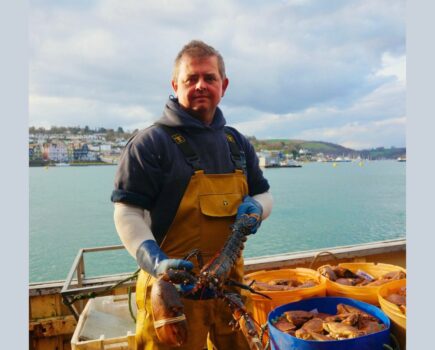“I love helping people,” Chris Williams, International Transport Workers’ Federation (ITF) fisheries expert, told Fishing News. “I’ve never before been sent so many messages of best wishes from people. What we do really makes a difference.”
After graduating from the University of Sussex in 2003, Chris took a role on a fisheries management project in Honduras, working with lobster and conch fishermen.
“That was a real wake-up call. I realised you don’t manage nature; you have to work with people – because they’re the ones who have the impact. From then on, rather than focusing on biology and ecology only, I moved into the human element of fisheries and the marine environment.”
After working on similar projects with artisanal fishermen in various parts of the world for the following five years, Chris returned to the UK to work as a marine adviser for a government department, before joining the New Economics Foundation, where he would spend the next decade.
“Over those 10 years I was involved in hundreds of projects, and spent hundreds of hours on fishing boats. Then, during the pandemic, one of my colleagues went to work for a trade union and saw the role with the ITF advertised – and said: ‘I think you’d be perfect for that.’
“I applied, got the job – and that’s what I’ve been doing for the past three and a half years, focusing on labour rights in the fishing industry and supply chain transparency.”
The ITF is a democratic, affiliate-led federation that aims to improve workers’ lives throughout the world. It has more than 700 affiliated trade unions in 155 countries – representing approximately 17m workers globally.
“It’s a very, very varied job. No two weeks are the same. We do a variety of different things, but our first job is really to support our 90 fishing union affiliates around the world – over 150,000 members. I do what those affiliates need. That could be support with campaigns, projects they’re working on, partnership projects, research or knowledge exchanges between unions.
“An average day doesn’t really exist. I plan my week ahead, but it very rarely turns out the week I thought it would be. My work ranges from working with international-level UN agencies all the way through to individual complaint and case handling. It’s extremely varied.”
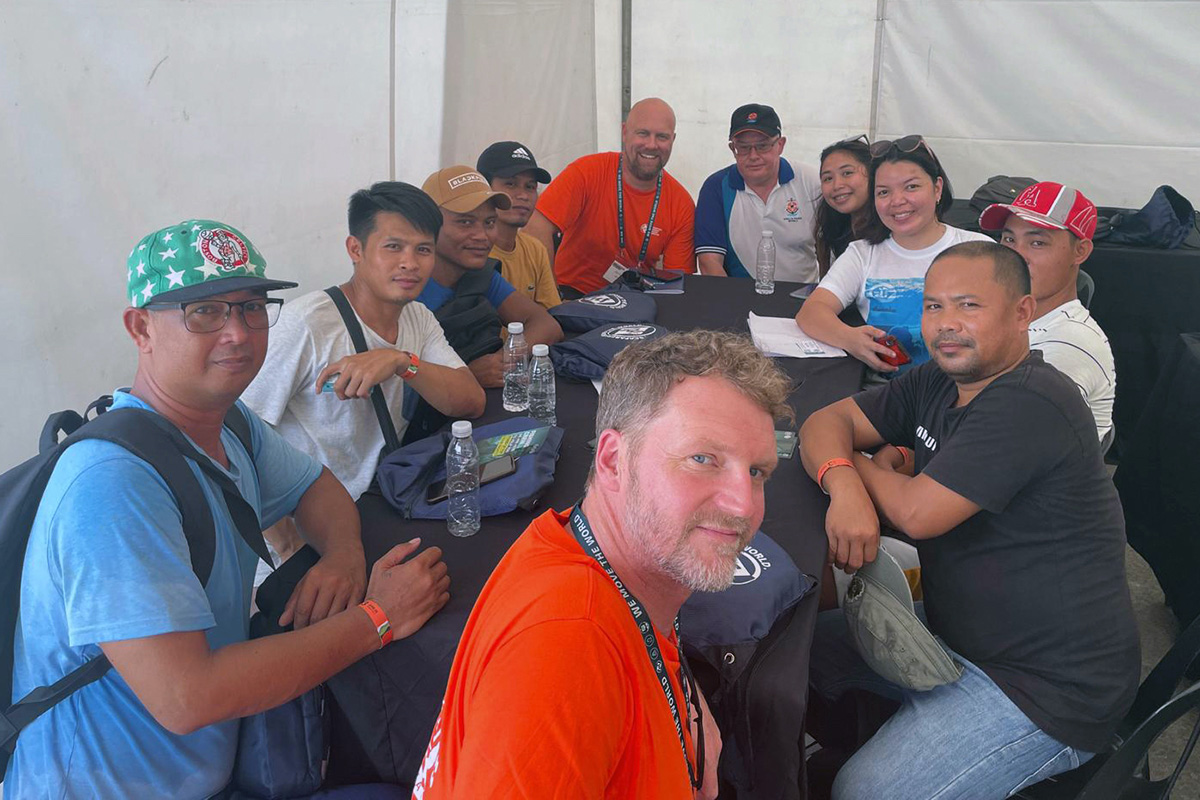
Chris Williams (front centre), the International Transport Workers’ Federation (ITF) fisheries expert, talking with Filipino fishermen at a seafood expo in Manila about their experiences of working in the Chinese distant-water fleet. “I like that my role is so varied. It’s international, and I work with people from every country on earth.”
Working for an international organisation presents a unique range of challenges when it comes to a ‘typical day’.
“One of the main challenges is that when I wake up, our affiliates in Asia are already having dinner, and by the time I finish work at 6pm or 7pm, our affiliates on the west coast of the United States and South America are just starting their working day – so my days are usually very long.
“At the moment I’m supporting ITF inspectors with casework in Peru, the USA and Uruguay. When they start contacting me at 8am their time, it’s already 4pm or 5pm here – but my day started after the school run, and I’ve also been working with people further east. So you tend to plan the day according to when other people are working.”
As well as assisting the federation’s affiliated unions globally, Chris’ role also sees him take on a wide range of responsibilities closer to home, from internal and external face to face and online meetings, to preparation for talks and presentations.
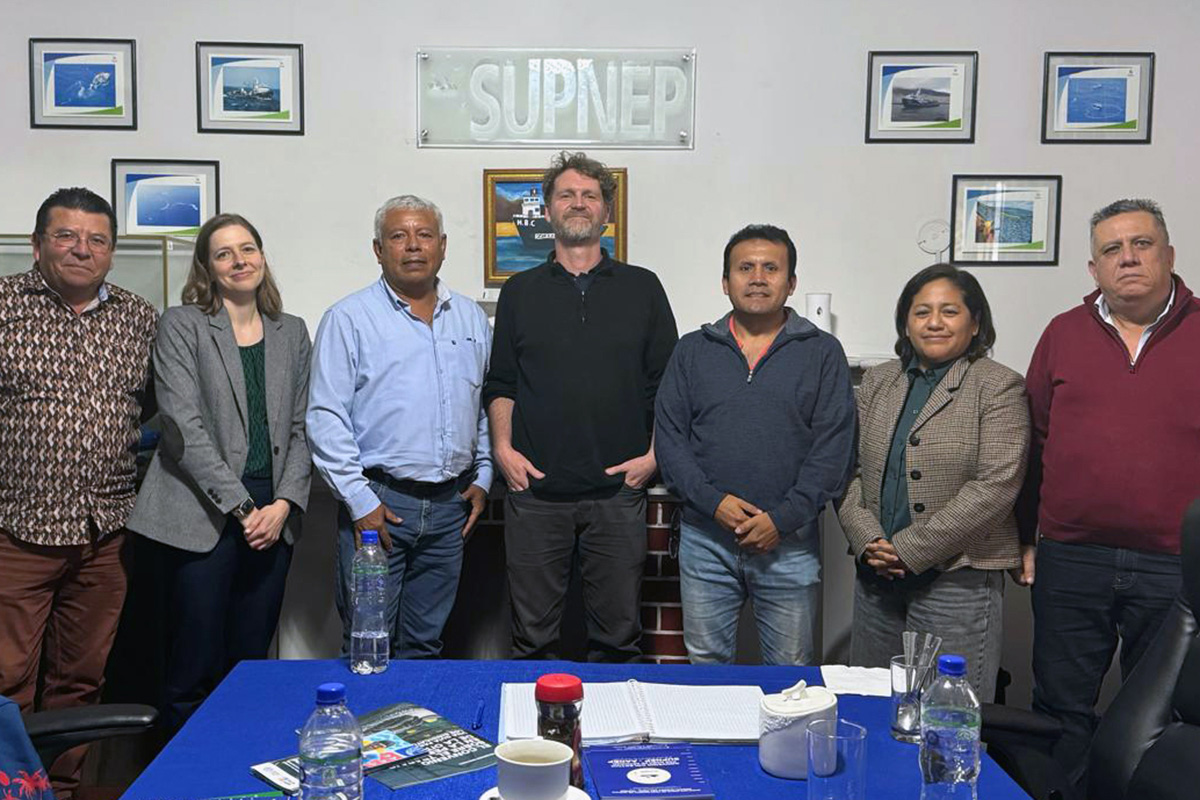
Chris meeting a hopefully soon-to-be-affiliated anchovy fishermen’s union that represents around 2,000 fishers in Peru. “I like working for an organisation that has teeth, and power. We can make meaningful change. The fishing sector really needs it – over 50% of seafarers are unionised or working on vessels with ITF agreements. In fishing, it’s less than 2%.”
Another important area of his job is individual casework. “I get contacted on an almost daily basis by migrant fishers working in the UK, and sometimes Ireland, with questions regarding their contract or issues with their employer, such as non- payment. They might have also been the victim of abuse, or are unclear about their immigration status and work permits.
“That can be different every week. Sometimes, sadly, it could be a fisher who has died and there’s questions from family and friends, and the repatriation of the body.”
Having worked in Central and South America for a significant part of his career, and being fluent in both Spanish and Portuguese, a large part of Chris’ role also involves travelling.
“Last year, I took more flights than in the previous 15 years combined. We ran seafarers’ expos in the Philippines, fish support training in Thailand, a series of workshops in Latin America, training events…
“In May this year, I was away for 16 days in Latin America. During that period, there was no desk-based time at all. I was just going from meeting to meeting and event to event, delivering training for government inspectors.”
With a young family at home, Chris admits to sometimes finding the travelling difficult. However, his passion and commitment to defending the rights of workers remains undiminished.
“By the nature of what the ITF does, we can sometimes be presented as a villain by employers. I’ve been fascinated with working fishing communities for the last 20 years. It’s an area that I’m really passionate about – and it’s about making the industry better for everyone, not just owners.
“I won’t take criticism from people who see the ITF as interfering. I get contacted every day and see exploitation first-hand, around the world. It’s our moral responsibility to help organise workers, and defend their rights wherever they’re being abused.”
This story was taken from the latest issue of Fishing News. For more up-to-date and in-depth reports on the UK and Irish commercial fishing sector, subscribe to Fishing News here or buy the latest single issue for just £3.30 here.
Sign up to Fishing News’ FREE e-newsletter here.

